William and Kate's Ireland visit: What do the duke and duchess hope to achieve?
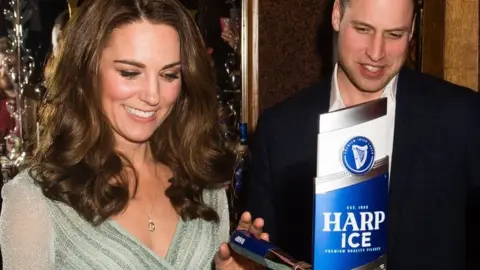 EPA
EPAFor 100 years, royal visits to Ireland were few and far between.
Before the Queen's visit to the Republic of Ireland in 2011, King George V's visit in 1911 was the last by a British monarch.
During that century-long gap there were seismic events that strained an already complicated relationship - Irish independence, partition and, in the latter part of the 20th Century, the Troubles.
The Duke and Duchess of Cambridge's three-day visit to Ireland is the latest in a series of moves over the past decade intended to improve Anglo-Irish relations.
They have said they want to "build a lasting friendship with the Irish people".
The 2011 royal visit was seen as a big test of where those neighbourly relations were at.
From the Queen's symbolic bow at Dublin's Garden of Remembrance, a site dedicated to those who fought for Irish independence, to her perfectly spoken Irish, which got a "wow" from then Irish President Mary McAleese, the visit was deemed a major success.
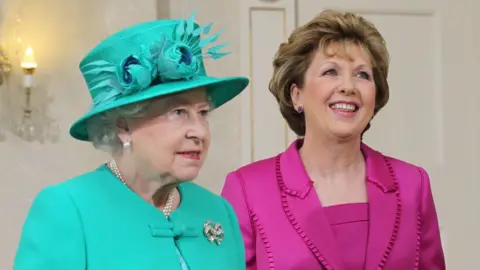 Press Association
Press AssociationThere may have been protests and a massive security operation but in general the mood was a welcoming one.
Even former Sinn Féin president Gerry Adams said he believed the monarch's expression of sympathy towards the victims of Ireland and the UK's troubled past was genuine.
Political historian and commentator Dr Éamon Phoenix said it was a turning point in Anglo-Irish relations.
That the visit included then UK Prime Minister David Cameron and north-south representatives from the two governments, as opposed to just being between the two heads of state, marked a "watershed" moment, said Dr Phoenix.
"There was the sense the two parts of Ireland were moving forward, assisted by the two governments and London," he added.
But if the relationship took a step forward, have more recent events seen it take two steps back?
Brexit - the UK's departure from the EU - sees it leave a union once shared with Ireland.
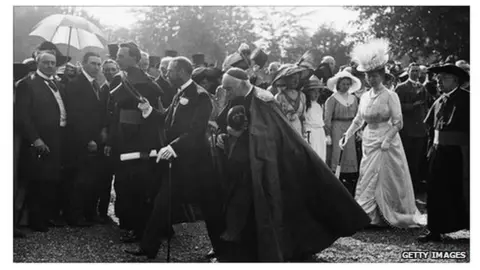 Getty Images
Getty ImagesHas the drawn-out departure and protracted negotiations over the border put extra strain on relations between the two governments?
Brexit raised questions of sovereignty, identity and borders - and just as Brexit was a "bolt out of the blue" for the Republic of Ireland, said Dr Phoenix, the shift in Anglo-Irish relations had also not been planned for.
It has caused "a chill factor", he said, and the Irish position against Brexit, as well as Dublin's efforts to ensure a soft border, has taken its toll.
"Anglo-Irish relations are not what they were - no question about it," he said.
However he said neither government wants to lose what has been achieved since 1971, when then UK Prime Minister Edward Heath told his Irish counterpart he had no right to "interfere" in the affairs of the UK.
"We have come a long way from that," the historian added.
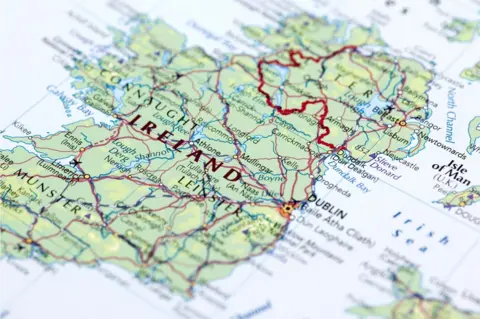 Getty Images
Getty Images"The two governments brokered the Good Friday Agreement and indeed the return of the [Northern Ireland] executive in January."
The theme of the royal visit is to build on "remembrance and reconciliation", so are Prince William and Catherine, not hampered by historical baggage, the ones to do it?
Very possibly, said Dr Phoenix.
"They are there as people not associated with the issues of the past or Brexit," he said, adding that they are "untainted and a reminder to people that they don't want to lose what the Queen called a golden thread uniting the two islands".
The duke and duchess are also venturing beyond the capital to Ireland's thriving art scene in Galway, the 2020 European Capital of Culture.
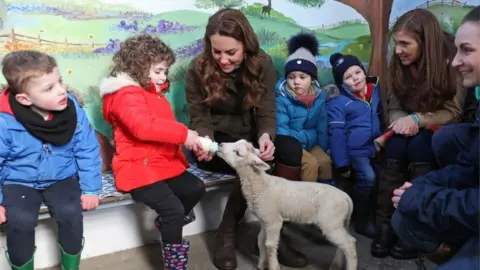 Getty Images
Getty ImagesAmid their busy itinerary, the royal couple will be carving out some time for their own particular interests - for Catherine, it is young people and childhood development.
On a surprise visit to an open farm in Northern Ireland in February, the duchess spoke to parents and grandparents about their experiences of raising young children.
The prince has been vocal about the need to tackle climate change and he will learn about Ireland's conservation initiatives with a "particular focus on sustainable farming and marine conservation".
The palace said the royal couple will experience modern and traditional Ireland and take in the country's "spectacular scenery".
While it may have all the hallmarks of a royal visit, Dr Phoenix said it can be seen as part of a rebuilding process after three years of tension.
Their visit, he said, may "remind people of just how much has been achieved in Anglo-Irish relations".